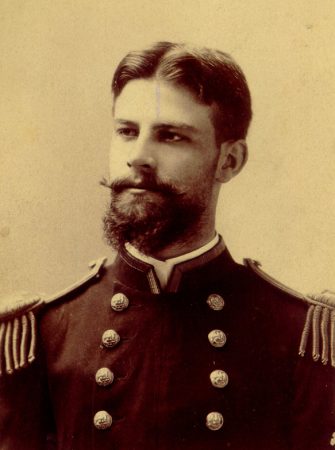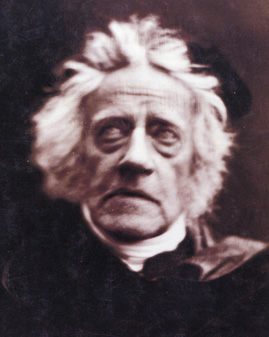
Richmond P. Hobson (1870-1937) was an American naval officer. Born and raised in rural Alabama, Hobson enrolled at the US Naval Academy, Annapolis at age 14. In 1889, he graduated top of his class, though Hobson’s rigid discipline and dislike of both alcohol or tobacco made him unpopular with classmates.
When war broke out between the US and Spain in 1898, Hobson was sent to Cuba. In May 1898, he was ordered to seize control of a coal ship, the Merrimac, and scuttle it in the harbour mouth at Santiago, an attempt to trap Spanish ships inside the harbour. Hobson did manage to sink the Merrimac, though not accurately enough to block the harbour mouth. He and his men were captured and detained by the Spanish.
Though Hobson’s mission failed, the jingoistic American press presented it much differently. Hobson was hailed as the “hero of the Merrimac” whose courage and daring had thwarted the Spanish. Newspapers carried stories of his bravery and portraits of the dashing young officer, who became a celebrity and a sex symbol, even as he remained a prisoner-of-war.
“The scene in the Chicago Auditorium, when Lieutenant Hobson was kissed by 163 morbid women, was loathsome. It is deplorable. It is sad that a man of his excellent courage and fine intelligence should so far forget the dignity of the American navy as to lend himself to a public exhibition of female hysteria… We shall never tire of boasting of his nerve and his unflinching devotion to duty; but no one is likely ever to hear us boasting about his modesty or his good taste.”
Reports were also scathing about the young women who rushed to kiss the “hero of the Merrimac“:
“We have no doubt they are heartily ashamed of themselves. They ought to be, at any rate.”
Hobson remained in the Navy, reaching the rank of captain, before resigning in 1903. The following year he was elected to the House of Representatives, serving there until 1916. In 1933 he received the Medal of Honour and a special pension for his exploits aboard the Merrimac.
Source: Pullman Herald, January 21st 1899. Content on this page is © Alpha History 2019-23. Content may not be republished without our express permission. For more information please refer to our Terms of Use or contact Alpha History.

